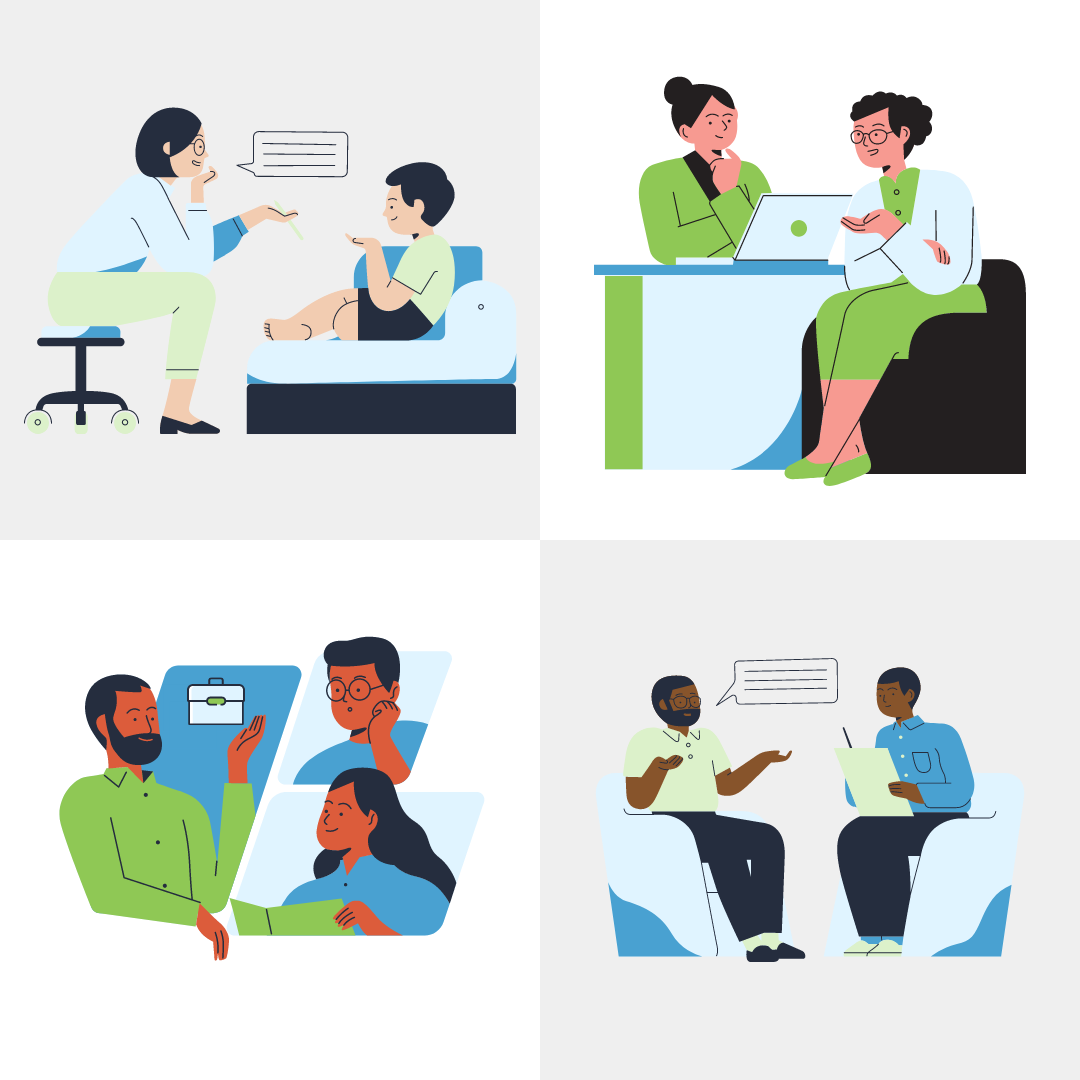2 CE Credit Hour On-Demand Self-Study Training on Working with Suicidal Clients
A Law & Ethics Approach to Working with Suicidal Clients
presented by Eric Ström, JD, PhD, LMHC
2 legal ethical CE credit hours
Fear of liability for suicidal clients is not an uncommon experience for behavioral health providers. This fear can unintentionally lead clinicians to inaction and avoidance thereby increasing a client’s risk of death by suicide. Join AMHCA ethics committee member, therapist and HIPAA lawyer, Eric Ström, JD PhD LMHC, as he demystifies true legal risks involved in client self harm and provides an ethical framework for ethically and effectively working with clients who are experiencing suicidality.
On-Demand Self-Study

Suicidality Bundle
Fear of liability can unintentionally lead clinicians to inaction and
avoidance thereby increasing a client’s risk of death by suicide
There are two best strategies to minimize your fear of liability:
- gaining a better understanding of the actual sources and causes of liability
- having a concrete framework for addressing client suicidality.
This two-hour workshop will focus on demystifying true legal risks involved in client self-harm and will provide an ethical framework for ethically and effectively working with clients who are experiencing suicidality.

Real feedback from the live event:
“As always, PCT trainings leave me feeling informed and empowered rather than fearful of liability. Thank you so much! Also Eric’s true enthusiasm and knowledge of this is so appreciated!
“
“The course was very well organized and presented in a way that really eased some of that worry around the amount of liability we hold. I also really appreciate the 3 factor model; it really makes a lot of sense and definitely will be taking this back to my clients. Thank you!”
“Clearly presented and one of the most useful presentations I have participated in. Thank you! “
“I took pages of notes despite teaching a suicide assessment course myself. Well done! … an exceptional training and I highly recommend it to others!”
Who is this event for?
This introductory-level course is appropriate for counselors, clinical social workers, marriage and family therapists, and clinical and counseling psychologists.
This course is intended to meet ethics continuing education requirements. This course is not intended to meet the specific WA requirements for 6 hours of continuing education in suicide assessment and treatment.
In Person Practices
Hybrid Practices
 Teletherapy Only Practices
Teletherapy Only Practices

I’ve been watching several of your CE programs and, while I’ve always been impressed with your services, I just have to say, your programs are excellently done with production and content and simultaneously warm and accessible. I really appreciate what you do!
Legal Liability
Identify the sources of legal liability when working with client suicidality
Ethical Standards
Describe the ethical standards when working with client suicidality
Systematic Strategies
Create and evaluate strategies to systematically approach client suicidality
Legal Liability
Apply best practice standards to create a clinical plan to best support client safety
Course Details
2 CE Credit Hour. Self Study
Title: A Law & Ethics Approach to Working with Suicidal Clients
Authors/Presenters: Eric Ström, JD, PhD, LMHC
CE Length: 2 CE credit hours, legal-ethical
Legal-Ethical CE Hours: 2 legal-ethical CE hour
Educational Objectives:
Participants in this workshop will be able to:
1) Identify the sources of legal liability when working with client suicidality
2) Describe the ethical standards when working with client suicidality
3) Create and evaluate strategies to systematically approach client suicidality
4) Apply best practice standards to create a clinical plan to best support client
safety.
Syllabus:
- Sources of Standards (.25 hours)
- Confidentiality & Duty to Report/Warn (.5 hours)
- Three Factor Model of Suicidality (1hour)
- Documentation (.25 hours)
Meet Our Presenters
Presented by
Eric Strom JD PhD LMHC

Eric Ström JD PhD LMHC, is an attorney and Licensed Mental Health Counselor in Seattle, Washington. As an attorney, Eric provides legal counsel, consultation, and guidance to mental health professionals. Eric’s counseling practice is focused on providing counseling services to combat veterans as well as providing supervision and consultation to other clinicians. Eric currently serves on the American Mental Health Counselors Association Ethics Committee, and is the ethics advisor for the Washington Mental Health Counselors Association. Eric has taught a range of courses in counseling and professional ethics at a variety of graduate and undergraduate programs.
Eric earned a PhD in Counselor Education and Supervision at Oregon State University, a Master of Arts Degree in Counseling Psychology from the Northwest School of Professional Psychology at Argosy University Seattle, graduated cum laude from Wayne State University School of Law in Detroit Michigan, attended the Hague Academy of International Law in the Hague Netherlands, and received a Bachelor of Arts degree in Linguistics from the University of Michigan.
Resources & Citations
- American Psychological Association, (2003). Practice Guideline for the assessment and treatment of patients with suicidal behaviors.
- Drye, R. C., Goulding, R. L., & Goulding, M. E. (1973). No-suicide decisions: Client monitoring of suicidal risk. American Journal of Psychiatry, 130(2), 171–174.
- Joiner T. E., Van Orden, K. A., Witte, T. K., & Rudd, D., M. (2009). The Interpersonal Theory of Suicide: Guidance for Working with Suicidal Clients. American Psychological Association:Washington DC.
- Kaplan, M. S., Huguet, N., McFarland, B. H., & Newsom, J. T. (2007). Suicide among male veterans: A prospective population-based study. Journal of Epidemiology and Community Health, 61, 619-624
- Kroll, J. The American Journal of Psychiatry (2000). Use of no-suicide contracts by psychiatrists in Minnesota., 157, 1684-1686.
- Lee, J., B., & Bartlet, M., L. (2005). Suicide prevention: Critical elements for managing suicidal clients and counselor liability without the use of a no-suicide contract. Death Studies, 29, 847-865.
- Maynard, C., & Boyko, E. J. (2015). Datapoints: Suicide rates in the Washington State veteran population. Psychiatric Services, 59(11),1245.
- Packman, W. L., O’Connor Pennuto, T., Bongar, B., & Orthwein, J. (2004). Legal issues of professional negligence in suicide cases. Behavioral Sciences & The Law, 22(5), 697-713.
Accuracy, Utility, and Risks Statement: This program discusses strategies for complying with HIPAA, state rules in general, and covered ethics codes. It may not include information on all applicable state laws. Misapplication of the materials, or errors in the materials, could result in security problems, data breaches, or non-compliance with applicable laws or ethics codes.
Conflicts of Interest: None noted
Commercial Support: None.
